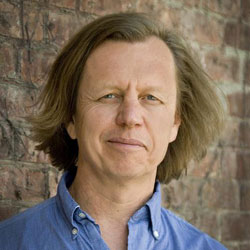We’ve decided that a good goal for 2013 is contentment. We sure see plenty of discontentment around us. Our consumer culture runs on it! Advertising pitches are designed to make us always want something more, better, or different. Every day we face moments when we can choose to be happy and satisfied or we can fall into a pattern of discontentment.
 We eat breakfast and wonder why our usual cereal tastes bland. We listen with some jealousy as a friend describes her weekend activities when we didn’t get out at all. Passing an electronics store, we decide we need a bigger TV. In the grocery store, the sight of the Indian spices gets us planning a long trip to India or another interesting locale. A YouTube video makes us think we should get a dog. And then we realize that we can’t afford these things or we don’t have time for them. Within a few hours, we can accumulate a whole list of disappointments, resentments, and regrets.
We eat breakfast and wonder why our usual cereal tastes bland. We listen with some jealousy as a friend describes her weekend activities when we didn’t get out at all. Passing an electronics store, we decide we need a bigger TV. In the grocery store, the sight of the Indian spices gets us planning a long trip to India or another interesting locale. A YouTube video makes us think we should get a dog. And then we realize that we can’t afford these things or we don’t have time for them. Within a few hours, we can accumulate a whole list of disappointments, resentments, and regrets.
Yet religious leaders have long recommended that we learn to be content. We’ve come to believe that contentment can be a daily spiritual practice. This month (January 6 – 26) we are leading a 21-day e-course on “Cultivating Contentment.” In daily emails we’ll draw from the writings of spiritual teachers of different traditions about being content. Then we’ll offer suggestions for reflection, discussion, and practice designed to encourage you to apply this wisdom in your life. Participants will be able to share their responses and experiences in an online “Practice Circle,” a private forum open 24/7. We invite you to join us!
Meanwhile, here is a preview of our approach to this practice.
Quaker William Penn observed: “Seek not to be rich, but happy. Riches lie in bags, happiness in contentment.” In Philippians 4:11-12, St. Paul writes: “I have learned to be content with whatever I have. I know what it is to have little, and I know what it is to have plenty. In any and all circumstances I have learned the secret of being well-fed and of going hungry, of having plenty and of being in need.”
What is he modeling for us here? When you know that you are loved by God and nurtured by family, friends, and community, you can simply be yourself and be satisfied with whatever comes to you.
In his book, The Virtue in the Vice, Robin Meyers, a Congregational minister, writes: “Contentment is not just a ‘peaceful, easy feeling’ or a way to rationalize laziness. It is a deep, easy-breathing wisdom that knows what can and can’t be changed, and more important, knows when to do and when to wait. The contented person watches the world closely, but does not stare it down. She enjoys things, rather than trying to possess them or straighten them out.”
Mary Ann’s sister Cora is the person in our lives who has done the best job demonstrating the daily benefits of contentment. She has always been a very centered person, untouched by the fads and fancies of consumerism. Her motto is “Live simply so that others may simply live.” She remains more interested in all the fascinating things she can do and learn than all the things she can’t afford to buy. Her life is rich with friendships and meaningful service.
You probably also know some people who are content with their lives. One way to make contentment a daily practice is to seek such mentors out and notice what they do.
Here are three other routes to contentment for us.
• We make a point of wanting what we have. This is a basic gratitude practice. Every day we try to acknowledge what one tool or object means to us. We don’t take things for granted. You might make a list of things you are grateful for at the end of the day, and include thanksgiving moments in your prayers.
• We try not to make comparisons. It’s easy to go through the day comparing our situation with another’s, and inevitably, it seems, we come up short, feeling either second-rate or deprived. The Baal Shem Tov, a great Jewish teacher, said, “Compare not yourself with anyone else, lest you spoil God’s curriculum.” We know God has made us each unique with particular gifts and talents. So whenever we fall into the comparisons trap, we stop and say, “Oh, there we go again, making silly comparisons.”
• Finally, we accept our imperfections and any “lacks” in our lives. Nobody is perfect, and few people get everything they want or even all they need. But we have been assured that none of this matters to God. God loves us as we are, faults and shortcomings included.















